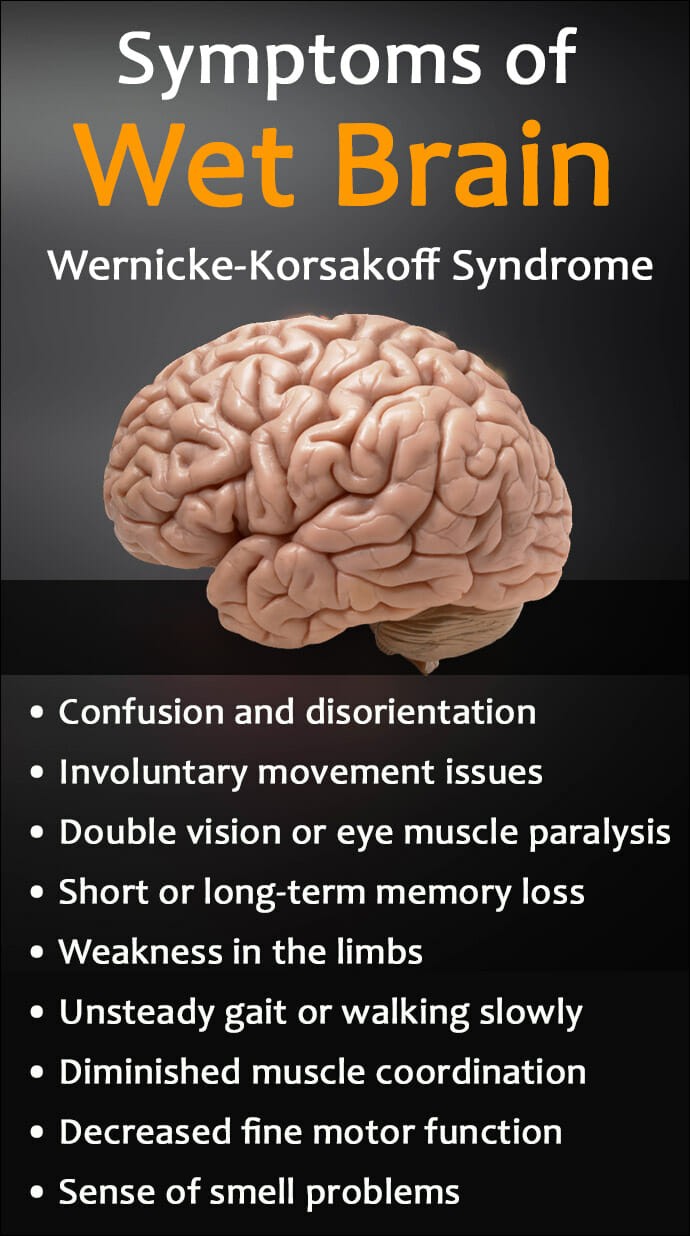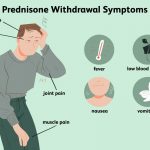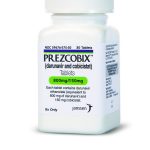
Contents
- 1 What Is Wernicke-Korsakoff Syndrome (WKS)?
What Is Wernicke-Korsakoff Syndrome (WKS)?
Wernicke-Korsakoff syndrome (WKS) refers to two brain disorders that often occur together: Wernicke encephalopathy and Korsakoff syndrome. These conditions can be described as different phases of the same disease. Common symptoms include confusion, loss of muscle coordination, and vision problems. Here is more information to help you understand WKS, including its causes, symptoms, treatment, and possible outcomes.
How Serious Is WKS?
WKS occurs when the body has very low levels of vitamin B1 (thiamine). Thiamine is essential for breaking down glucose and providing energy to the brain and nervous system. Prompt medical care is crucial for overcoming Wernicke encephalopathy, as the condition can be reversed if treatment is received within the first 2 to 3 days of symptoms. However, it can be challenging to diagnose WKS in time. More than 80% of individuals with Wernicke encephalopathy also develop Korsakoff syndrome. Alcohol abuse is the leading cause of WKS, as it leads to low vitamin B1 levels. If you misuse alcohol, it’s important to discuss this with your doctor to reduce the risk of developing WKS.
What Are the Symptoms of Wernicke-Korsakoff Syndrome?
- Low or no appetite
- Weight loss
- Weakness
- Tiredness
Wernicke encephalopathy, the first stage of WKS, can cause the following:
- Trouble thinking: confusion, indifference, fatigue, difficulty paying attention
- Vision problems: double vision, rapid eye movements, eye muscle problems, drooping eyelids (rare)
- Movement problems: muscle coordination difficulties, unsteadiness, slow walking, poor balance
In addition, individuals may experience other physical or mental symptoms, such as:
- Low body temperature
- Low blood pressure when standing
- Loss of consciousness (coma)
- Mood disturbances
- Increased heart rate
- Seizures
- Unequal pupil size
Prompt high-dose thiamine treatment can improve symptoms of Wernicke encephalopathy within 5 to 12 days. However, without treatment, the condition can worsen.
Korsakoff syndrome typically follows Wernicke encephalopathy. Individuals with Korsakoff syndrome are often unaware of their condition, but those close to them may notice their tendency to fabricate information to compensate for memory gaps.
The main symptom of Korsakoff syndrome is memory loss, accompanied by a distorted sense of time. Vision problems and difficulty walking, characteristic of Wernicke encephalopathy, may also be present.
Other symptoms of Korsakoff syndrome include:
- Loss of past memories (amnesia)
- Trouble forming new memories
- Hallucinations
- Feeling disoriented or perplexed
What Are the Causes of Wernicke-Korsakoff Syndrome?
Excessive alcohol consumption over an extended period is a major risk factor for developing WKS. Alcohol impairs the body’s ability to absorb and use vitamin B1. Other contributory factors include inadequate thiamine intake from food, prolonged vomiting, eating disorders, malnutrition, mental conditions like schizophrenia, gastric bypass surgery, digestive tract disorders, chemotherapy, systemic illnesses, severe morning sickness during pregnancy, and kidney disease. While men are more susceptible to WKS, Korsakoff psychosis can be triggered by severe alcohol withdrawal. In rare cases, head injuries can cause WKS.
How Do Doctors Diagnose Wernicke-Korsakoff Syndrome?
A definitive test for WKS does not exist. Diagnosis involves a comprehensive physical examination, discussion of medical history and lifestyle, including alcohol consumption and dietary habits.
In suspected cases of Wernicke-Korsakoff syndrome, doctors may also:
- Evaluate memory function
- Measure thiamine levels
- Perform an eye exam
- Observe walking ability
Other tests may be conducted to rule out alternative conditions. These may include blood, urine, and liver tests, thyroid function tests, and assessments of electrolytes and vitamin levels. Brain scans may be ordered to check for tumors or bleeding.
What’s the Treatment for Wernicke-Korsakoff Syndrome?
Treatment for WKS involves addressing both Wernicke encephalopathy and Korsakoff syndrome.
Wernicke encephalopathy: Thiamine is administered promptly, often before making a definitive diagnosis. Patients may receive thiamine shots or thiamine through intravenous infusion while closely monitored for possible allergic reactions. Hospitalization may be necessary to provide the following:
- Thiamine injections into the muscles
- Intravenous thiamine
- Fluids to balance electrolytes
- Proper nutrition
- Magnesium and potassium supplements
Upon achieving normal thiamine levels, patients may be prescribed oral thiamine supplements. Additional treatments may include abstaining from alcohol, dietary changes, psychotherapy, and physical therapy.
Korsakoff syndrome: The primary goal is to protect the brain from further damage by administering thiamine replacement therapy. Although no medication currently treats Korsakoff syndrome directly, patients may learn memory-enhancing techniques with the assistance of healthcare professionals.
How Do You Prevent WKS?
To reduce the risk of developing WKS, it is advisable to maintain a healthy diet and moderate alcohol consumption. However, if you consume excessive alcohol, your doctor may recommend a daily thiamine supplement and other vitamins. Those at risk of Wernicke encephalopathy may receive thiamine shots as a preventive measure.
Is Wernicke-Korsakoff Syndrome Reversible?
Recovery from Wernicke encephalopathy depends on swift treatment. Early intervention can lead to a complete return to normal functioning, although some individuals may experience ongoing memory and walking issues that persist for up to a year. Treatment for Korsakoff syndrome can improve certain symptoms, such as vision problems. However, restoring memory capability is challenging, with only around 20% of patients making a full recovery. The condition may also continue to progress, resulting in a need for long-term care. Without treatment, Wernicke-Korsakoff syndrome can be fatal.
(c)2019 WebMD, LLC. All rights reserved.
Sources:
National Center for Advancing Translational Sciences, Genetic and Rare Diseases Information Center: “Wernicke-Korsakoff syndrome.”
Merck Manual: “Korsakoff Psychosis.”
University of Rochester Medical Center: “Thiamine.”
International Medicine Journal: “Thiamine in the treatment of Wernicke encephalopathy in patients with alcohol use disorders.”
The Primary Care Companion for CNS Disorders: “Wernicke’s Encephalopathy: Increasing Clinician Awareness of This Serious, Enigmatic, Yet Treatable Disease.”
National Organization for Rare Disorders: “Wernicke-Korsakoff Syndrome.”
Akhouri, S., Newton, E. Wernicke-Korsakoff Syndrome, StatPearls Publishing, 2019. Alzheimer’s Association: “Korsakoff Syndrome.”
Neuropsychiatric Disease and Treatment: “Korsakoff’s syndrome: a critical review.”
Cochrane Database of Systematic Reviews: “Thiamine for prevention and treatment of Wernicke-Korsakoff Syndrome in people who abuse alcohol.”
National Institute of Neurological Disorders and Stroke: “Wernicke-Korsakoff Syndrome Information Page.”
The Lancet: “Wernicke-Korsakoff syndrome in patients with cancer: a systematic review.”
- Medical Reviewer: Christopher Melinosky, MD


